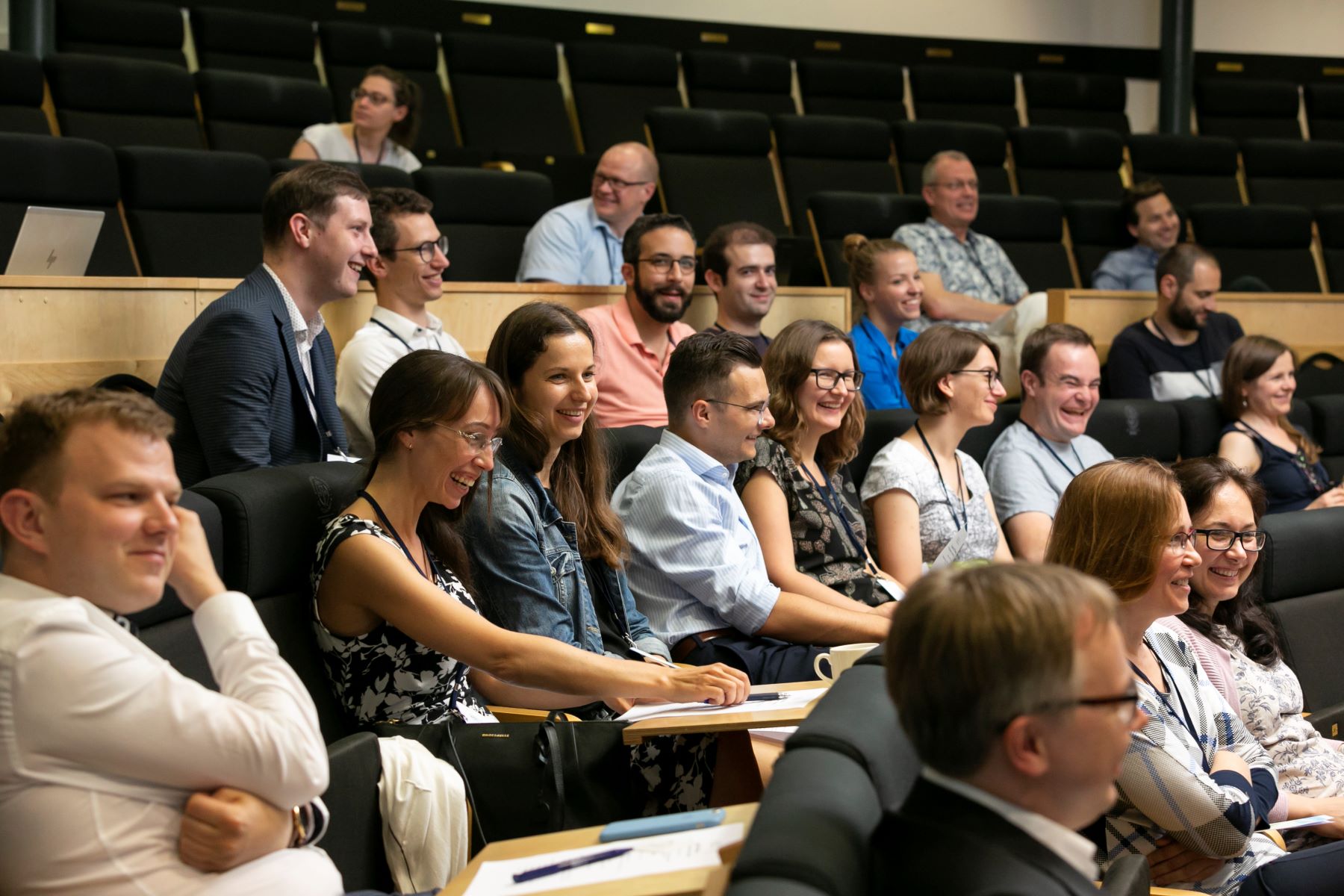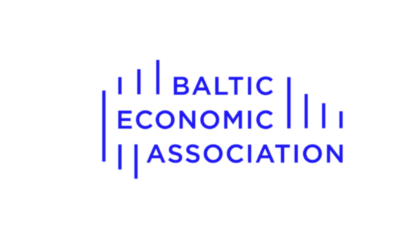Previous BEA online research seminars
June 1, 2023:
Speaker: prof. dr. Richard Frensch (Leibniz Institute for East and Southeast European Studies)
Title: Topography, borders, and trade across Europe (with Jarko Fidrmuc and Michael Rindler)
More about the speaker: https://leibniz-ios.de/personen/details/richard-frensch
May 18, 2023:
Speaker: Ija Trapeznikova (Royal Holloway and BICEPS)
Title: Output Shocks and Firm Recruitment (with Jesper Bagger, Francois Fontaine and Manolis Galenianos)
More about the speaker: https://sites.google.com/site/ijatrapeznikova/
April 27, 2023:
Speaker: Aldona Kapacinskaite (Bocconi University)
Title: Keeping Invention Confidential (with Colleen Cunningham)
More about the speaker: https://sites.google.com/view/aldonakap/home
March 2, 2023:
Speaker: Toomas Laarits (New York University, Stern School of Business)
Title: The Retail Habitat (with Marco Sammon)
More about the speaker: https://www.stern.nyu.edu/faculty/bio/toomas-laarits
January 26, 2023:
Speaker: Ronald Masulis (UNSW School of Business, University of New South Wales)
Title: Influential Independent Directors’ Reputation Incentives: Impacts on CEO Compensation Contracts and Financial Reporting (with Shawn Mobbs)
More about the speaker: https://sites.google.com/site/ronmasulis
December 1, 2022:
Speaker: Maryna Tverdostup (Vienna Institute for International Economic Studies University of Tartu)
Title: Gender Identity, Co-Working Spouses and Relative Income Within Households (with Natalia Zinovyeva)
More about the speaker: https://wiiw.ac.at/maryna-tverdostup-s-1587.html
November 3, 2022:
Speaker: Boris Ginzburg (University Carlos III de Madrid)
Title: Flooding the Zone? Troll Farms and Voter Disinformation (with Philipp Denter)
More about the speaker: https://sites.google.com/site/borgin/
October 13, 2022:
Speaker: Nicholas Kozeniauskas (Bank of Portugal and Católica-Lisbon)
Title: Demand Learning, Customer Capital, and Exporter Dynamics (with Spencer Lyon)
More about the speaker: https://nicjkoz.com
June 8, 2022:
Speaker: Tymofii Brik (Kyiv School of Economics)
Title: Long trends in mass polarization in Ukraine 1994-2016: using beliefs network approach
More about the speaker: https://kse.ua/people/tymofii-brik/
March 31, 2022:
Speaker: Tatyana Deryugina (University of Illinois at Urbana-Champaign)
Title: Pollution and Mortality in the United States: Evidence from 1972- 1988 (with Julian Reif)
Abstract: We estimate the effects of sulfur dioxide (SO2) exposure on short- and long-run mortality in the US over the period 1972-1988. Using wind direction as an instrument for changes in daily SO2 levels, we estimate that a one-day, one part-per-billion increase in SO2 raises all-age mortality by 0.18 deaths per million over the next four weeks. This immediate mortality increase is concentrated among the elderly. We then calibrate a dynamic production model of health using our short-run estimates. The model suggests that the 1972-1988 reductions in SO2 can explain a meaningful share of the observed mortality decline over this time period.
More about the speaker: https://deryugina.com/
February 17, 2022:
Speaker: Jaan Masso (University of Tartu)
Title: Joining and exiting the value chain of multinationals and the performance of suppliers: evidence from inter-firm transaction data (with Priit Vahter)
Paper available here.
Abstract: This paper investigates the productivity effects for domestic suppliers from joining and exiting the value chains of multinational enterprises (MNEs). The vast majority of prior literature has relied on sector-level input-output tables in estimating the effects of vertical linkages of FDI. Instead, our econometric analysis of the creation and destruction of backward linkages of MNEs is based on information on firm-to-firm transactions recorded in the valued added tax declarations data. Treatment analysis based on propensity score matching and panel data from Estonia suggests that starting to supply multinationals initially boosts the value added per employee of domestic firms, including effects on the scale of production and the capital-labour ratio. These first linkages to MNEs do not affect the total factor productivity (TFP) of domestic firms, suggesting that TFP effects take time to materialise. We further find that there are limits to the wider diffusion of the effects of linkages to MNEs. We find no significant positive effects on the second-tier suppliers: the positive effects are limited to the first-tier suppliers with direct links to MNEs. One novel result is the evidence that the productivity of suppliers does not fall, on average, after decreasing or ending supplier relationships with MNE customers.
More about the speaker: https://www.etis.ee/CV/Jaan_Masso/est?tabId=CV_ENG
January 27, 2022:
Speaker: Ilja Kantorovitch (EPFL, Lausanne)
Title: Does Dispersed Sentiment drive Returns, Turnover, and Volatility for Bitcoin? (with Janko Heineken)
Paper available here.
Abstract: We test the theoretical predictions of the differences-of-opinion literature by analyzing the extensive online discussion on Bitcoin to build a time-varying sen- timent distribution, defining disagreement as dispersion in sentiment. High disagreement is associated with negative returns, high turnover growth, and high volatility, confirming the theory’s predictions. However, we do not find that an increase in disagreement increases the price, which is seemingly at odds with the theoretical prediction of disagreement leading to overpricing. As the theory predicts, the disagreement effect weakens significantly after shorting instruments were introduced at the end of 2017. Our results are economically significant: at the monthly frequency, a one standard deviation increase in disagreement leads to a 9.2 percentage points lower cumulative return over the following eight months, and the adjusted R2 of regressing contemporaneous returns on average sentiment and disagreement is 0.33.
More about the speaker: https://www.kantorovitch.eu/home
Ilja was awarded the Best PhD Paper Award at the 3rd Baltic Economic Association Conference. He was also a finalist at the 2021 ECB Young Economists Competition.

